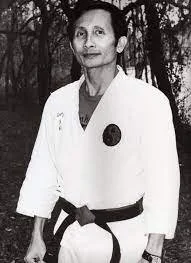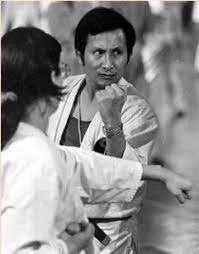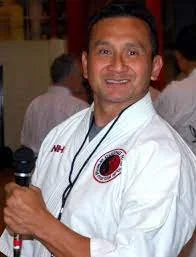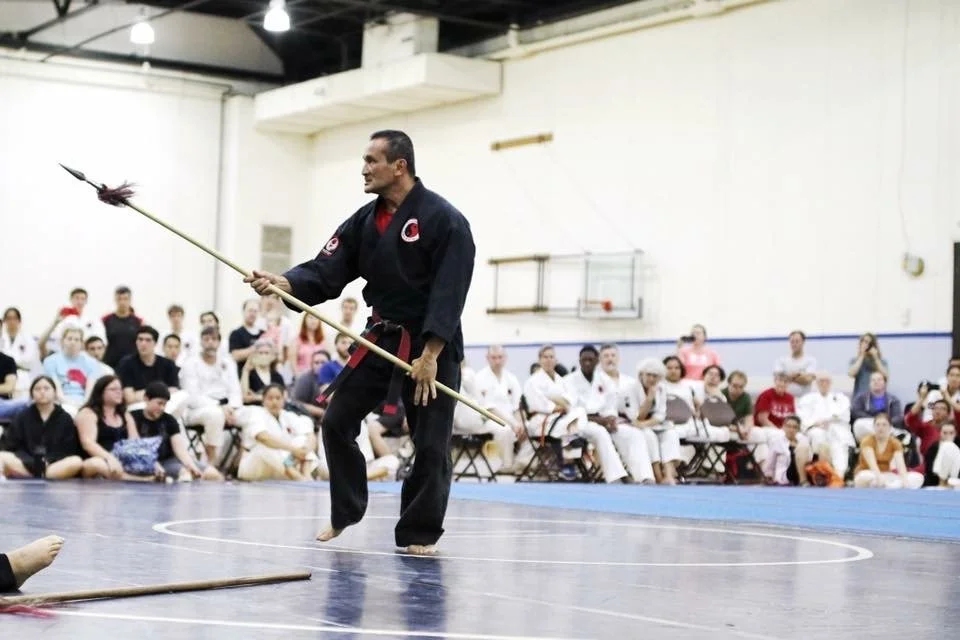Mandarin Martial Arts
Cuong Nhu World Headquarters Dojo
History of Mandarin Martial Arts
Mandarin Martial Arts was established by Grandmaster Quynh Ngo and Master Jessica Ngo in 1997, originally located in Orange Park, and then moving to Mandarin. While we are locally known as Mandarin Martial Arts, we are known within the style of Cuong Nhu as the World Headquarters Dojo.
Our philosophy is to provide affordable programs to expand Cuong Nhu martial arts and the many benefits of training for kids and adults. Our instructors are volunteers who have achieved the rank of Black Belt through Master ranks in Cuong Nhu Martial Arts, and have a passion to continue spreading their love of martial arts to the next generation of students.
Master Jessica Ngo leads our team of 12 instructors as our Head Instructor, and Sensei Mark Lake serves as Head of School, handling the various administrative needs of the dojo.
History of Cuong Nhu Martial Arts
O'Sensei Ngo Dong founded Cuong Nhu Martial Arts in 1965 in Hue, Vietnam. To build a strong moral and spiritual foundation for his style, Grandmaster Dong interjected his personal philosophy of self-improvement, community service, and love and respect for others. In Vietnam, Cuong Nhu was more than just another form of martial arts. It provided an ideological touchstone for its students, young people who had grown up in a sadly disjointed, war-torn society that was hard-pressed to meet their spiritual needs. Grandmaster Dong taught martial arts techniques to help his students build themselves up physically, mentally, and spiritually so they could lead full, complete lives.
As a child, Ngo Dong learned Vovinam (Martial Arts of Vietnam) from his brother, Ngo Quoc Phong, one of the top five students of Vovinam's founder, Grandmaster Nguyen Loc. He also learned Wing Chun from his two oldest brothers, who studied with Chinese Master Te Kong. Another brother was an instructor in Aikido. Although their father, Ngo Khanh Thuc, was then attorney general of northern Vietnam, the Ngo brothers tested their fighting skills on the street by engaging hustlers and professional street fighters inhabiting the alleys and back streets of Hanoi. After moving south to Hue, Vietnam in 1956, Ngo Dong began Shotokan Karate training under a former Japanese captain, Choji Suzuki. After years of fanatical training, he earned his fourth degree black belt. He also studied Judo and earned a black belt in that system. His appreciation for multiple styles, and how they completed and strengthened one another, served as a foundation for his new art of Cuong Nhu.
After the devastating 1968 Tet offensive, he organized a civil defense organization, The People's Self-Defense Forces of Hue, to help protect the public from the random violence spawned by the war. His organization engaged some 25,000 people in a program of karate, games and friendly competition to rebuild morale and spirit. He was devoted to the development of Cuong Nhu and the personal growth of thousands of students.
In 1971, he traveled to the United States to pursue a Ph.D. in Entomology at the University of Florida. In September 1971, during his post-graduate studies, Grandmaster Dong opened the first Cuong Nhu Karate Club in the United States. Within two years, it grew into the largest intramural organization on campus. In the spring of 1973, the Cuong Nhu Karate Association, now known as the Cuong Nhu Martial Arts Association, was incorporated to ensure continuity and uniformly high standards of instruction. Grandmaster Dong earned his doctorate in three years and returned to Vietnam in 1974.
An outspoken opponent of communism, Grandmaster Dong was placed under house arrest by the communist government of Vietnam in 1975. He and his family later took the tremendous risk of escaping by boat to Indonesia. There he resumed contact with his former students in the U.S., and with their help, he returned to the United States in November 1977, on Homecoming Day. Taking a position in the University of Florida entomology department, he was able to resume teaching Cuong Nhu both on and off campus.
After his escape in 1977, O’Sensei wrote the following letter to his students in the United States:
Dear Cuong Nhu friends: At last my family and myself got out of the “Red Hell.” This is the second time we tried to escape and we succeeded. It was like in a spy movie, I'll tell the whole story later on when we'll meet together. I was indebted to my friend Mr. Vo Dinh Chuc who owned a small boat ... in a small harbor 300 km North of Saigon, consented to bring us along with his family. The two families had to leave Saigon by small groups (two or three people each group) bringing nothing except clothes on the body (we'd be arrested if we brought luggage or money, or went in a group like a family) we changed to a bus and then trucks, at last we arrived at the place at night, we jumped in the boat and fled to the ocean at 9:30 pm June 18. On June 22 we ran out of fuel, food, water. We called SOS for 2 days. We met 14 big ships but they didn't answer our SOS call. At last an Indonesian ship (6500 tons) named Garsa Tiga picked us up in the ocean; by then we had covered already 600km without sleeping. They brought us to Singapore where we had no permission to land, then we arrived Djakarta 27 June, we had to stay aboard two days for investigation because we didn't have papers. A delegation of the United Nations and the US Embassy came to interview us, and we filled out many forms. Then we moved to a Vietnamese refugee camp where 108 other Vietnamese refugees lived there already six months waiting for permission to go to USA, Australia and France. All procedures took a very long time. We hope that Cuong Nhu Karate Association can help us to shorten our stay in Djakarta by sending letters sponsoring my family and my friend's family, Vo Dinh Chuc, the man who saved us in bringing us along with him in his boat. Hope to see you soon. —Ngo Dong
During the subsequent 21 years, he oversaw the evolution and development of a well-organized, comprehensive curriculum for Cuong Nhu, the creation of training manuals, the growth and spread of individual dojos, and the promotion of many hundreds of Cuong Nhu students to black belt and higher rank. He continued traveling throughout the U.S. to teach Cuong Nhu and conduct advanced testing, until illness forced his retirement in the late 1990s.
Cuong Nhu: 1998 to the Present
With O'Sensei's retirement immanent, the senior leadership of Cuong Nhu voted to offer the Head of Style position to his son Quynh, who, while still young (in his 30's), showed a special talent and dedication to his father's legacy. Grandmaster Quynh accepted the responsibility of leadership at a time when Cuong Nhu had approximately 75 active dojos in the U.S. and abroad.
Grandmaster Quynh Ngo served as Head of Style for the next twenty-three years, often with his brothers and sister by his side. He oversaw the standardization of Cuong Nhu's curriculum across its many diverse schools, and the modernization of instructional resources, bringing much material online. He also continued his father's vision of Cuong Nhu as an open-minded and ever-evolving style, studying deeply and being willing to make changes, while holding to the style's core principles.
He traveled extensively for seminars and dan rank testing, and maintained the Cuong Nhu tradition of an annual international training camp that felt as much like a family reunion as a rigorous training event. When in-person training was interrupted by the pandemic, he along with many Cuong Nhu instructors adapted to teaching and testing at a distance and online. Tragically, on September 1, 2021, in the prime of his life and until then in peak health, Grandmaster Quynh passed away.
Grandmaster Quynh Interview: Teaching Martial Arts
He is succeeded as Head of Style by Grandmaster John Burns. As an early student of O'Sensei Dong, a member of the panel of Masters who voted that Grandmaster Quynh should succeed his father, and as assistant and advisor to Grandmaster Quynh for many years, Grandmaster Burns is positioned to carry forward the legacies of both father and son, and ensure that Cuong Nhu will be passed down to the younger generation as a strong and cohesive style.
Listen to the Ngo Family share more about the history of Cuong Nhu.






